Strategic Training Executive Programme (STEP 2.0)
The Strategic Training Executive Programme (STEP 2.0) is a professionalisation programme that enhances the leadership and change management skills of public sector health supply chain managers in low- and middle-income countries (LMICs).
The programme blends elements of self-paced learning, facilitator-led training, on-the-job application of leadership skills under coaching support. The programme provides guidance in people management, problem-solving, communication, project management and professional development.
STEP 2.0 Objectives
- Familiarise participants with principles of leadership styles and strategies of change management
- Enable real-time application of these principles and strategies to address supply chain challenges in their context
- Become a part of a network of programme and country supply chain practitioners and public health leaders
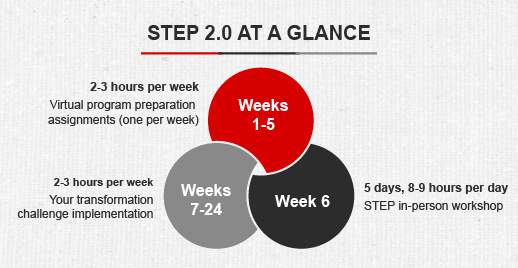
The availability of health commodities is often constrained by limited supply chain management (SCM) leadership and failure to address SC challenges. STEP 2.0 addresses these challenges.
Managed by People that Deliver (PtD), visit the STEP 2.0 Hub to know more about the programme.
Empower School of Health is part of PtD’s pool of accredited implementing partners and has also been selected by GAVI as a certified provider to deliver STEP 2.0.
Watch this video co-created with our donor and partner, IFPW Foundation, to know more about STEP 2.0
Eight (8) STEP 2.0 Programmes Implemented by Empower in Africa and Asia Pacific Region Since 2022
| STEP 2.0 Implemented by Empower | Partners | Participants | |
|---|---|---|---|
| STEP 2.0 Kenya (2025) |
Donor: Global Fund and IFPW Foundation Coaches: Pfizer, IQVIA, Merck, Red Lightning and Sanofi |
25 supply chain directors, deputy directors and senior managers from the Directorate of Health Products and Technologies (DHPT), Ministry of Health; the Kenya Medical Supplies Authority (KEMSA) and 9 counties from Kenya. | |
| Female-focused STEP 2.0 Nigeria (2025) |
Donor: IFPW Foundation Coaches: Advantage Health Africa, Pfizer, Merck, CHS advisory/Red Lightning, and People that Deliver |
28 female managerial and technical staff (directors, deputy directors and senior managers) from various departments within the National Products Supply Chain Management Programme (NPSCMP) and the Department of Food and Drug Services (DFDS), Federal Ministry of Health, Nigeria. | |
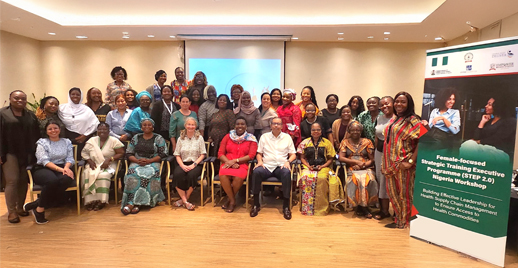
|
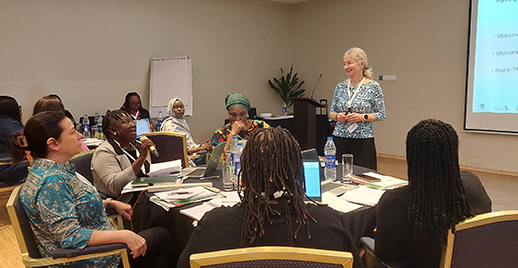
|
||
| STEP 2.0 Togo (2024) |
Donor: USAID GHSC Francophone Task Order Coaches: Red Lightning, Cargolux and TEDIS Pharma. |
15 healthcare supply chain managers and leaders from Centrale d’Achats de Médicaments Essentiels et Génériques (CAMEG) and Ministère de la Santé (Direction de la Pharmacie du Médicament et des Laboratoires, Programme National de Lutte contre la Tuberculose, Programme national de lutte contre le Sida, les hépatites virales et les IST, Direction de la Santé Mère Enfant and Centre Hospitalier Universitaire Campus. | |
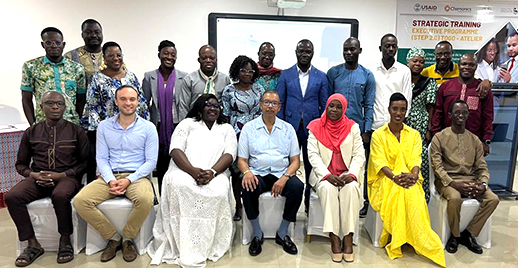
|
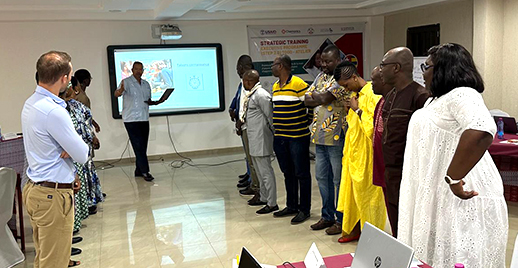
|
||
| STEP 2.0 India (2024) |
Donor: IFPW Foundation Coaches: Johnson & Johnson, MSD Merck and Pfizer |
21 health supply chain leaders and managers from Central Medical Services Society (CMSS), various state National TB Elimination Programmes, IPE Global and Plan India. | |
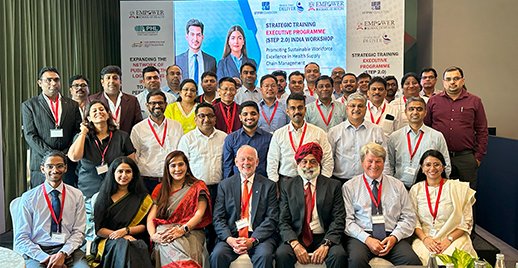
|
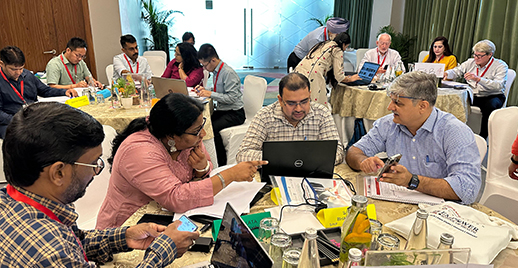
|
||
| STEP 2.0 DRC (2024) | Donor: CORDAID Coaches: GSK, Johnson & Johnson, Be for Service, SEGUCE, CM&A and CAMELU | 24 healthcare supply chain managers and leaders from the National Drug Supply Programme (PNAM), Hôpital Kintambo, CAMESKIN, FEDECAME, PNLP, DPS Kinshasa, IGS, PNFP and ACRP. | |
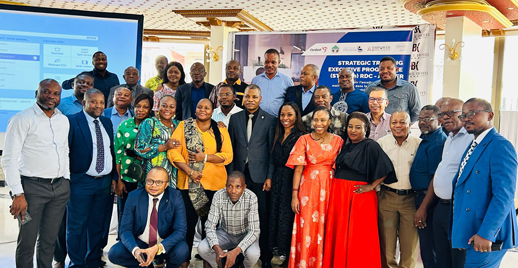
|
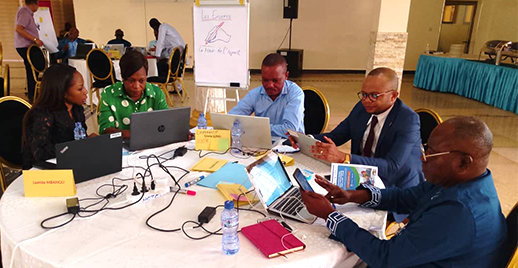
|
||
| STEP 2.0 Rwanda Medical Supply (RMS Ltd.) (2023) |
Donor: USAID Global Health Supply Chain Program, Procurement and Supply Management (USAID GHSC-PSM) Chemonics Program, Rwanda. Coaches and facilitators from GAVI, IFPW Foundation, AmeriSource Bergen, GSK, Johnson & Johnson, MSD Merck and Pfizer |
24 participants including directors, deputy directors, warehouse, procurement, audit and logistics managers and leads from RMS Ltd. This collaborative effort resulted in participants working on transformational challenges in employee turnover, low-quality data, manual processes, manufacturer relations and private sector engagement. |
|
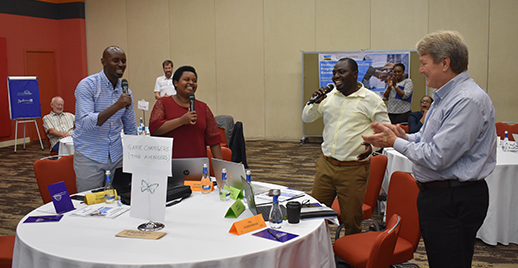
|
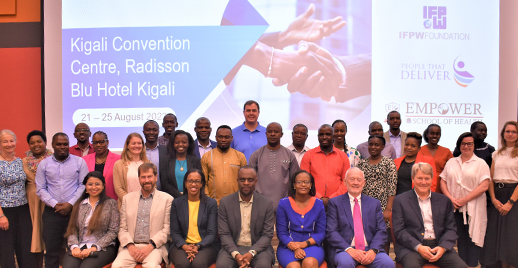
|
||
| STEP 2.0 Asia Pacific Regional Programme (2023-24) (Bangladesh, Myanmar, Nepal, Pakistan, Vietnam and Timor Leste) |
Donors: IFPW Foundation and Global Fund Facilitators from MSH and coaches from Alliance Healthcare, Zuellig Pharma, AmeriSource Bergen, Johnson & Johnson, MSD Merck and Pfizer. |
19 leaders and managers from in-country Ministries of Health and national supply chain agencies. Participants successfully addressed challenges that centred around improving availability of health commodities, planning, quantification, budgeting and human resource capacities; reducing stock-outs/expiries; ensuring warehouse optimization, data quality, accuracy and use; and utilising data automation and electronic logistics management information systems (eLMIS) to bring about improved distribution, demand/supply planning and forecast accuracy. | |
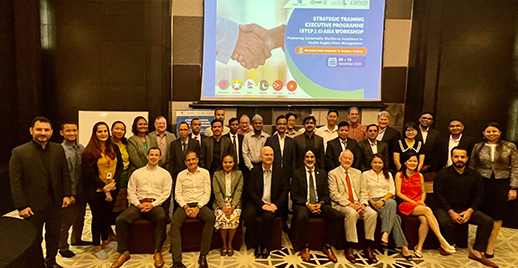
|
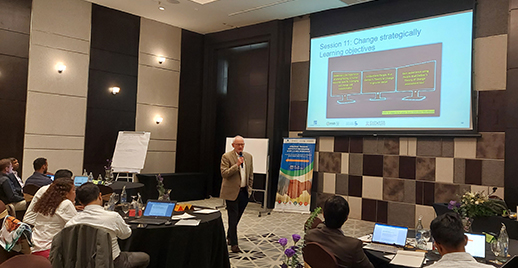
|
||
| STEP 2.0 Uganda (2022) |
Donor: IFPW Foundation Coaches: J&J, MSD, and GSK |
25 participants supply chain managers, senior pharmacists, manager vaccines supply chain systems, logistician, cold chain and logistics specialist, and others working with the Ministry of Health/UNEPI, Uganda; National Medical Stores; The Global Fund, CHAI, MSH, USAID, PATH, and others. | |
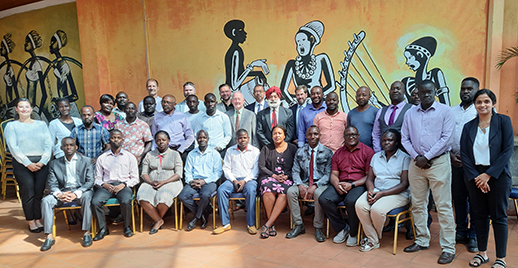
|
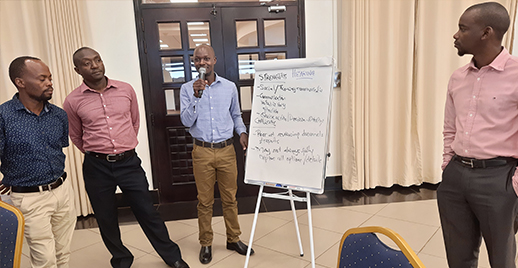
|
||


